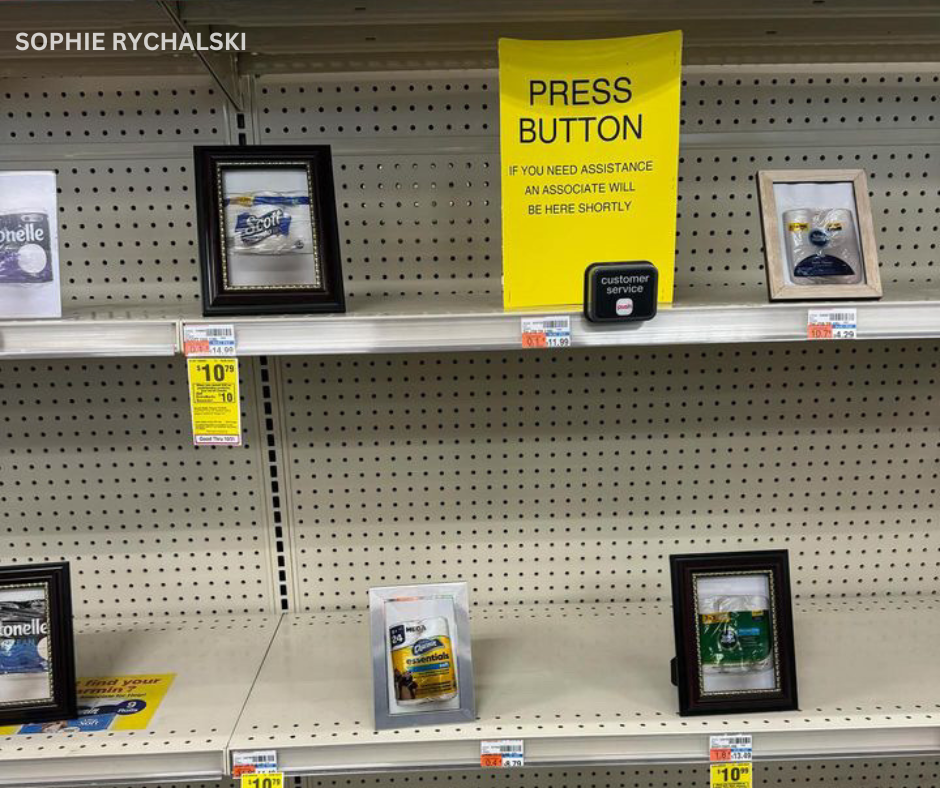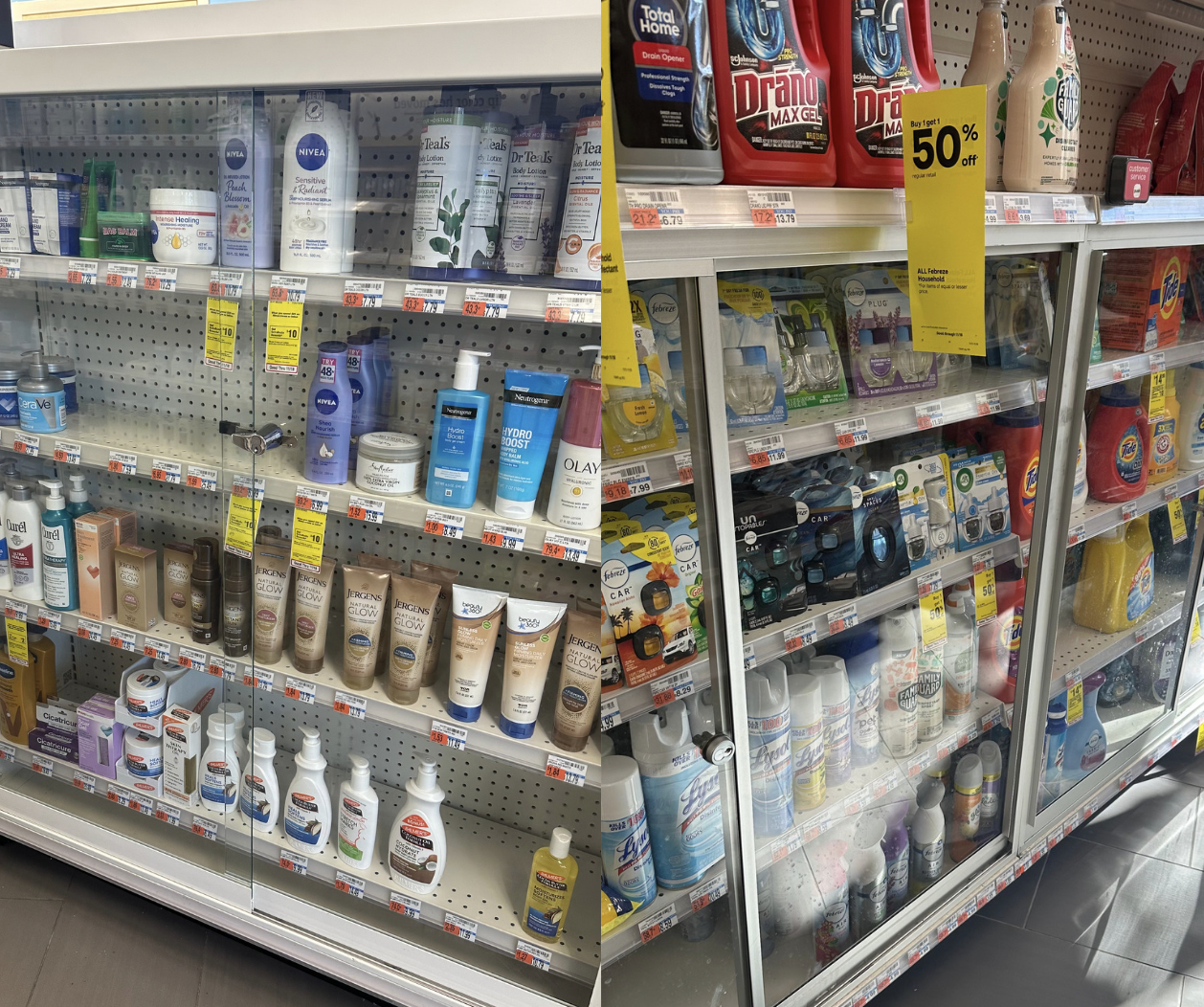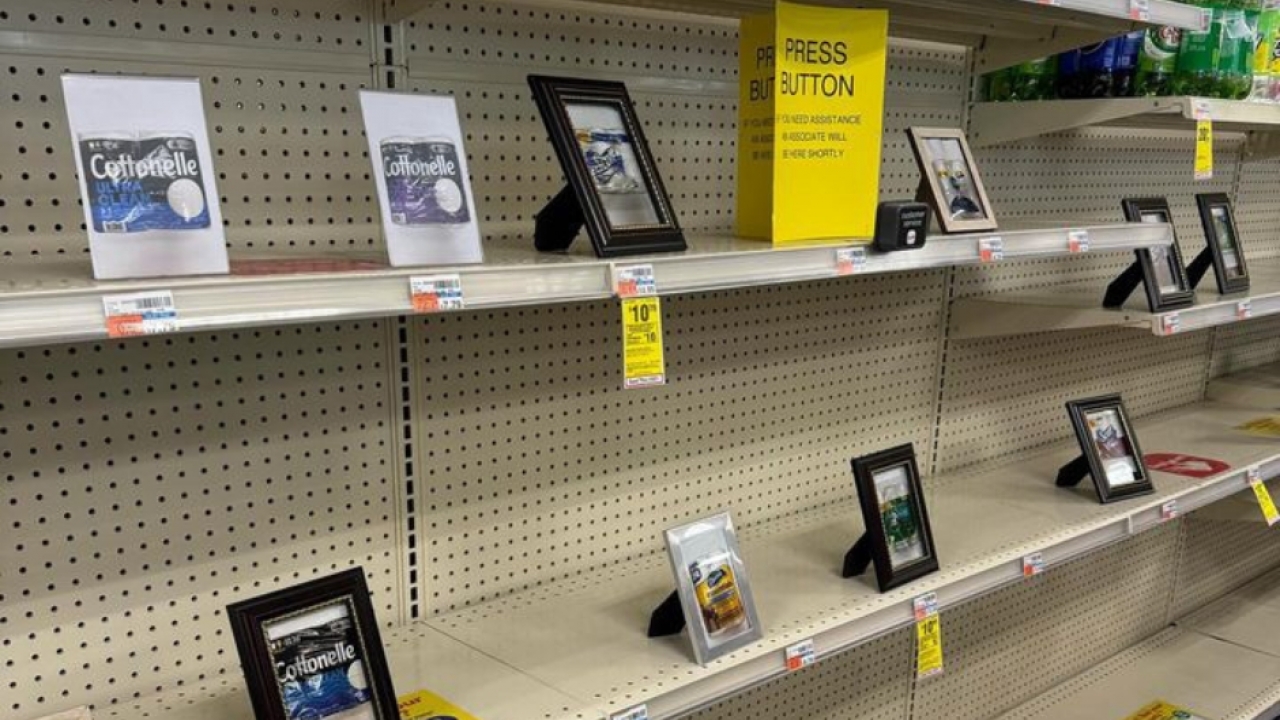A CVS retail location in Washington, D.C. recently took asset security to a new level by keeping toilet paper locked in the back of the store and replacing it on the shelves with framed photos of the products.
Pictures of the mostly vacant shelves at the H Street store captured by Washington resident Sophie Rychalski garnered lots of attention on social media, thanks in part to a post on the Instagram page Washingtonian Problems and a recent thread on Reddit.
Some reactions to photos were more comical, with one user stating “they could have at least got matching frames.” But most of the comments on the Washingtonian Problems page were of concern. Some said retail theft has gone too far while others said when people are stealing basic necessities like toilet paper, the problem is poverty.
Another CVS location in the district’s Brentwood neighborhood also moved their paper products off the shelves and posted a sign stating, “Sorry for the trouble. Due to increase of theft and we truly value our customers and want to make sure everything is available we do have ALL paper products just see a CVS Employee THANK U.”
 Sophie Rychalski
Sophie Rychalski
Both CVS stores refused Scripps News’ request for comment.
When asked about the unique solution at the Washington store, CVS Pharmacy’s Lead Director of External Communications Amy Thibault provided the following statement:
“We use a variety of product protection measures to deter or prevent theft to keep merchandise in-stock and available for our customers to purchase. In Washington, DC, we’ve worked closely with the DC Metro Police to identify and dismantle several major shoplifting rings and will continue to do so and are supporting new initiatives to combat retail theft in partnership with the DC Attorney General's Office.”
But Thibault would not give any more details on the new initiatives mentioned. Attorney General Brian Schwalb’s office and DC Metro Police Department did not respond to inquiries related to Thibault’s statement from Scripps News.
A rise in retail theft is not an issue exclusive to the country’s capital. A report published in September by the National Retail Federation (NRF) said retail crime accounted for over $112 billion in industry losses last year.
“Retailers are seeing unprecedented levels of theft coupled with rampant crime in their stores, and the situation is only becoming more dire," said NRF Vice President for Asset Protection and Retail Operations David Johnston. "Far beyond the financial impact of these crimes, the violence and concerns over safety continue to be the priority for all retailers, regardless of size or category.”
In that same report, 28% of the retailers said they were forced to close a specific store location, 45% said they had to reduce operating hours and 30% reduced or altered in-store product selection as a direct result of retail crime.
Step into any CVS or big box store in a populated city like Washington, and you’ll find shelves lined with locked display boxes, like the pictures below from the CVS in Mount Vernon Square, and smaller items, like $4 tweezers, locked behind plastic fasteners on hooks. Buttons to call an employee for assistance in getting the products are scattered throughout some stores, while others ask you to track down an employee and ask for help.
 Provided to Scripps News
Provided to Scripps News
Constantly adding new theft deterrents throughout the stores to solve one problem may contribute to another issue of turning off in-person customers.
“It’s invasive,” a business consultant said to the Associated Press. ”If they’re going to make it that hard to buy something, I’ll find somewhere else to buy that.”
“Retailers do not want to lock up items,” Johnston said. “They want items to be readily available and accessible to their customers. Unfortunately, they also want the items to be there.”
The scope of retail theft today also has both customers and employees concerned about the level of violence that sometimes comes hand-in-hand with a robbery.
A recent survey of 2,000 Americans by Verkada, a cloud-based security systems company, and Harris Poll found that 81% of shoppers are worried about their safety when they go to stores in person. And the majority are changing the way they shop for the holiday season because of their fears.
Most of those concerns have to do with viral videos of large groups of people entering malls or stores for “smash and grab” theft schemes. It’s this type of “organized retail theft” that led Washington Mayor Muriel Bowser to introduce legislation in October targeted at “recent public safety challenges.”
Bowser’s Addressing Crime Trends Now Act (ACT Now) would provide more tools to law enforcement in Washington to “hold criminals accountable,” according to a press release. It would work against the rise in retail theft by “creating criminal penalties for organized retail theft” and “establishing a new crime for 'directing organized retail theft’ which makes it illegal for any person to act as the organizer of a theft for profit scheme by recruiting or directing individuals to commit organized retail theft,” Bowser’s office stated.
“We need to act now, and we need to send the strong message that violence is not acceptable in our city — and this perception that people have, that you can commit a brazen crime and get away with it, has got to stop,” Bowser said during the announcement of the new proposal on Oct. 23. “This legislation will change that.”







